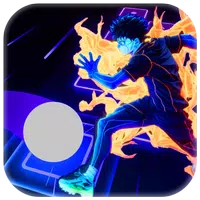
The Evolving Role of Silent Protagonists in Modern RPGs: A Conversation Between Dragon Quest and Metaphor: ReFantazio Creators
Veteran RPG developers Yuji Horii (Dragon Quest) and Katsura Hashino (Metaphor: ReFantazio) recently discussed the challenges of utilizing silent protagonists in today's gaming landscape, as featured in the "Metaphor: ReFantazio Atlas Brand 35th Anniversary Edition" booklet. Their conversation highlights the evolving relationship between technological advancements and narrative design in RPGs.

Horii, known for Dragon Quest's iconic silent protagonist, described the character as a "symbolic protagonist." This design choice allows players to project their own feelings and experiences onto the character, fostering deeper immersion. In earlier games, the simpler graphics made this approach effective; the lack of detailed expressions meant players filled in the blanks.

However, Horii acknowledges the limitations of this approach in the age of increasingly realistic graphics. He humorously notes that a silent protagonist in a high-fidelity game might simply look "like an idiot." He attributes his preference for silent protagonists to his background in manga and his focus on storytelling through dialogue and player interaction, rather than extensive narration. Dragon Quest's narrative unfolds primarily through conversations with NPCs, creating a unique interactive storytelling experience.

The shift towards more realistic visuals presents a significant hurdle. The minimalist graphics of the NES era allowed players to easily imagine their own emotional responses, but this is becoming increasingly challenging with modern game technology. Horii concludes that the traditional Dragon Quest protagonist will be increasingly difficult to portray convincingly as realism in games improves.

In contrast to Dragon Quest's silent protagonist, Hashino's Metaphor: ReFantazio features a fully voiced protagonist. While acknowledging the challenges, Hashino praised Horii's approach, emphasizing Dragon Quest's focus on the player's emotional response to in-game events, even those involving seemingly minor NPCs. This player-centric design philosophy is a key element of the Dragon Quest experience.






